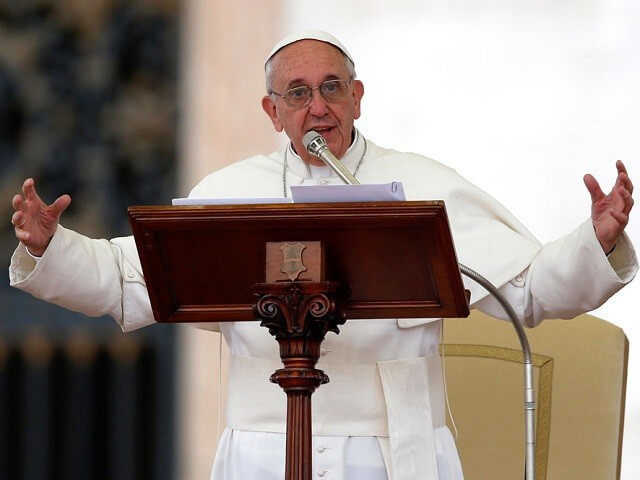Pope did not intend to present himself as climate change expert, says bishop who helped him draft key encyclical

The Pope did not intend to present himself as an expert on the science of climate change in his encyclical on the environment, according to a bishop who helped draft the document.
Bishop Mario Toso said: "I must insist, it is not the intention of Pope Francis" to pronounce on scientific debates, "but to reflect on the anthropological and ethical issues that arise from them."
Laudato Si is likely to be one of the most influential documents to come out of the Holy See in recent decades but it has aroused criticism from climate change sceptics.
US President Barack Obama has welcomed the encyclical but GOP presidential hopeful Jeb Bush is among the influential US Republicans who have criticised the Pope.
Others such as Professor Deborah Huntzinger, a Northern Arizona climate science specialist, have said his technical grasp of how greenhouse gases warm the planet is wrong. At the same time, scientists such as Michael Mann, director of the Earth System Science Centre at Pennsylvania State University, have said the encyclical accurately reflected current science.
In the interview in Italian with Giuseppe Rusconi of Inside the Vatican, Bishop Toso said the Pope's objective had been to promote a global ecological movement for care of the earth, humanity's common home.
Bishop Toso, now a diocesan bishop but until January the secretary of the Pontifical Council for Justice and Peace, was involved with the first draft of Laudato Si, written in 2014. He said the document underlies the "urgent need to care for humanity itself."
The human race is facing a "global ecological question", he said.
"The ecological crisis" that we now face is closely related not only to the environ but also to cultural, anthropological, ethical and religious questions around human existence, he added.
The Pope wants humanity to reject the indiscriminate use of natural resources as if they are unlimited.
This means ecological conversion, lifestyle changes, the care of the urban environment, social relations and education must all be embraced to this end.
The bishop also said the Pope had also changed the encyclical from addressing primarily Catholics from a theological perspective in the early version to addressing a wider audience including non-believers in its final form.











